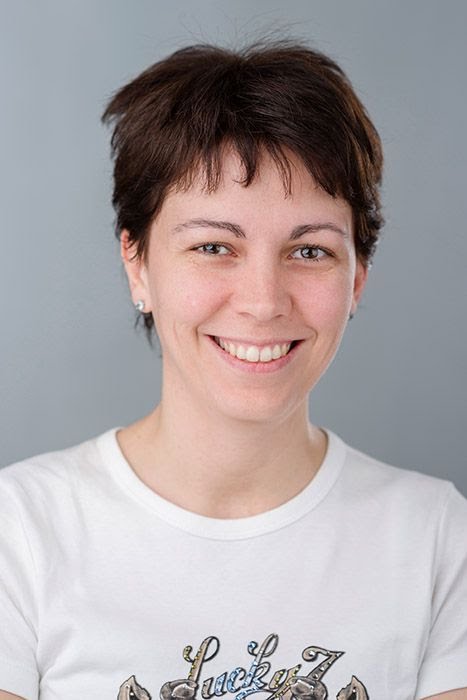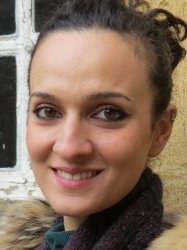Studying at the University of Verona
Here you can find information on the organisational aspects of the Programme, lecture timetables, learning activities and useful contact details for your time at the University, from enrolment to graduation.
Academic calendar
The academic calendar shows the deadlines and scheduled events that are relevant to students, teaching and technical-administrative staff of the University. Public holidays and University closures are also indicated. The academic year normally begins on 1 October each year and ends on 30 September of the following year.
Course calendar
The Academic Calendar sets out the degree programme lecture and exam timetables, as well as the relevant university closure dates..
| Period | From | To |
|---|---|---|
| primo semestre magistrali | Sep 30, 2019 | Dec 20, 2019 |
| secondo semestre magistrali | Feb 24, 2020 | May 29, 2020 |
| Session | From | To |
|---|---|---|
| Sessione invernale magistrali | Jan 7, 2020 | Feb 21, 2020 |
| Sessione estiva magistrali | Jun 3, 2020 | Jul 10, 2020 |
| Autumn Session exams | Aug 24, 2020 | Sep 11, 2020 |
| Session | From | To |
|---|---|---|
| Autumn Session | Dec 2, 2019 | Dec 4, 2019 |
| Winter Session | Apr 7, 2020 | Apr 9, 2020 |
| Summer session | Sep 7, 2020 | Sep 9, 2020 |
Exam calendar
Exam dates and rounds are managed by the relevant Economics Teaching and Student Services Unit.
To view all the exam sessions available, please use the Exam dashboard on ESSE3.
If you forgot your login details or have problems logging in, please contact the relevant IT HelpDesk, or check the login details recovery web page.
Academic staff
 martina.menon@univr.it
martina.menon@univr.it
 marcella.veronesi@univr.it
marcella.veronesi@univr.it
Study Plan
The Study Plan includes all modules, teaching and learning activities that each student will need to undertake during their time at the University.
Please select your Study Plan based on your enrollment year.
1° Year
| Modules | Credits | TAF | SSD |
|---|
2° Year activated in the A.Y. 2020/2021
| Modules | Credits | TAF | SSD |
|---|
2 courses to be chosen among the following2 courses to be chosen among the following| Modules | Credits | TAF | SSD |
|---|
| Modules | Credits | TAF | SSD |
|---|
2 courses to be chosen among the following2 courses to be chosen among the following| Modules | Credits | TAF | SSD |
|---|
Legend | Type of training activity (TTA)
TAF (Type of Educational Activity) All courses and activities are classified into different types of educational activities, indicated by a letter.
Type D and Type F activities
Nei piani didattici di ciascun Corso di studio è previsto l’obbligo di conseguire un certo numero di crediti formativi mediante attività a scelta (chiamate anche "di tipologia D e F").
Oltre che in insegnamenti previsti nei piani didattici di altri corsi di studio e in certificazioni linguistiche o informatiche secondo quanto specificato nei regolamenti di ciascun corso, tali attività possono consistere anche in iniziative extracurriculari di contenuto vario, quali ad esempio la partecipazione a un seminario o a un ciclo di seminari, la frequenza di laboratori didattici, lo svolgimento di project work, stage aggiuntivo, eccetera.
Come per ogni altra attività a scelta, è necessario che anche queste non costituiscano un duplicato di conoscenze e competenze già acquisite dallo studente.
Quelle elencate in questa pagina sono le iniziative extracurriculari che sono state approvate dal Consiglio della Scuola di Economia e Management e quindi consentono a chi vi partecipa l'acquisizione dei CFU specificati, alle condizioni riportate nelle pagine di dettaglio di ciascuna iniziativa.
Si ricorda in proposito che:
- tutte queste iniziative richiedono, per l'acquisizione dei relativi CFU, il superamento di una prova di verifica delle competenze acquisite, secondo le indicazioni contenute nella sezione "Modalità d'esame" della singola attività;
- lo studente è tenuto a inserire nel proprio piano degli studi l'attività prescelta e a iscriversi all'appello appositamente creato per la verbalizzazione, la cui data viene stabilita dal docente di riferimento e pubblicata nella sezione "Modalità d'esame" della singola attività.
ATTENZIONE: Per essere ammessi a sostenere una qualsiasi attività didattica, inlcuse quelle a scelta, è necessario essere iscritti all'anno di corso in cui essa viene offerta. Si raccomanda, pertanto, ai laureandi delle sessioni di dicembre e aprile di NON svolgere attività extracurriculari del nuovo anno accademico, cui loro non risultano iscritti, essendo tali sessioni di laurea con validità riferita all'anno accademico precedente. Quindi, per attività svolte in un anno accademico cui non si è iscritti, non si potrà dar luogo a riconoscimento di CFU.
Documents and news
-
 Descrizione del percorso di formazione - Regolamento didattico
(pdf, it, 479 KB, 22/04/21)
Descrizione del percorso di formazione - Regolamento didattico
(pdf, it, 479 KB, 22/04/21)
| years | Modules | TAF | Teacher |
|---|---|---|---|
| 1° 2° | Enactus Verona 2020 | D |
Paola Signori
(Coordinator)
|
| 1° 2° | Parlare in pubblico e economic writing | D |
Martina Menon
(Coordinator)
|
| 1° 2° | Samsung Innovation Camp | D |
Marco Minozzo
(Coordinator)
|
| 1° 2° | Simulation and Implementation of Economic Policies | D |
Federico Perali
(Coordinator)
|
| years | Modules | TAF | Teacher |
|---|---|---|---|
| 1° 2° | Predictive analytics for business decisions - 2019/20 | D |
Claudio Zoli
(Coordinator)
|
| 1° 2° | Professional communication for economics - 2019/20 | D |
Claudio Zoli
(Coordinator)
|
| 1° 2° | Parlare in pubblico e economic writing | D |
Martina Menon
(Coordinator)
|
| 1° 2° | Regulation, procurement and competition - 2019/20 | D |
Claudio Zoli
(Coordinator)
|
| 1° 2° | Simulation and Implementation of Economic Policies | D |
Federico Perali
(Coordinator)
|
Microeconomics (advanced) (2019/2020)
Teaching code
4S02460
Teacher
Coordinator
Credits
9
Language
English
Scientific Disciplinary Sector (SSD)
SECS-P/01 - ECONOMICS
Period
primo semestre magistrali dal Sep 30, 2019 al Dec 20, 2019.
Learning outcomes
The course covers topics of consumer theory, production theory, industrial organization, and experimental/behavioral economics. It is divided into three parts. The first part will analyze economic models of individual decision-making, consumer behavior, and firm behavior. The second part will provide students with rigorous economic tools for the analysis of market structure and market relations. The third part will introduce concepts of experimental and behavioral economics, paying particular attention to alternative theories of individual choice behavior. Theoretical lectures will be complemented by practical exercise classes and tutorials aiming at applying the concepts and methods developed during the course. At the end of the course, students should be able to: - understand the determinants of consumers' and firms' choices as well as the fundamental characteristics of different market structures, - apply economic models for the analysis of markets structure and behavior, - critically assess the implications of different behavioral models for the analysis of individual and group choices.
Program
MODULE 1
Traditional Approach to Consumer Theory:
- preference relations
- choice
- utility functions
- utility maximization problem
- expenditure minimization problem
- duality
Production Theory:
- technology
- profit maximization problem
- cost minimization problem
Markets Structures and Organization:
- perfect competition
- advanced monopoly theory
- markets for homogeneous/differentiated products
- self-enforcing collusion
MODULE 2
Behavioral and experimental economics:
- methods of experimental economics
- models of other-regarding preferences
- applications to industrial organization
| Author | Title | Publishing house | Year | ISBN | Notes |
|---|---|---|---|---|---|
| Jehle Geoffrey and Reny Philip | Advanced Microeconomic Theory (Edizione 3) | Pearson | 2011 | ||
| Shy Oz | Industrial Organization: Theory and Applications (Edizione 2) | MIT Press | 1999 |
Examination Methods
Students' preparation will be assessed through a written exam that will include open questions on the theory and a number of exercises. The exam will test the students' accurate and thorough understanding of the concepts, methods, and models explained during the course as well as their ability to use theoretical tools in order to solve empirical questions.
Moreover, students are given the opportunity to present an article to the class. The lecturer will distribute the articles among which a student can select the one (s)he wants to present.
Career prospects
Module/Programme news
News for students
There you will find information, resources and services useful during your time at the University (Student’s exam record, your study plan on ESSE3, Distance Learning courses, university email account, office forms, administrative procedures, etc.). You can log into MyUnivr with your GIA login details: only in this way will you be able to receive notification of all the notices from your teachers and your secretariat via email and soon also via the Univr app.
Linguistic training CLA
Gestione carriere
Student login and resources
Graduation
List of theses and work experience proposals
| theses proposals | Research area |
|---|---|
| La (cattiva) gestione dei fondi comunitari in Italia | ECONOMICS - ECONOMICS |
| Analisi dell'Impatto della Regolamentazione: potenziale e applicazioni concrete | Various topics |
| Costs and benefits of the new Turin-Lyon railway line | Various topics |
| Costs and benefits of new systems for speed control on italian motorways | Various topics |
| Contingent valuation for the quality of hospital characteristics | Various topics |
| Evaluating occupational impacts of large investment projects | Various topics |
Internships
Admission policy
ADMISSION POLICY
The admission procedure for international students is explained in details at:
www.magecverona.it/admission-benefits/
For further information please contact magec@dse.univr.it
Additional information
Additional information
For further information visit the program website, http://magec.dse.univr.it, or send an email at magec@dse.univr.it.

 0458028734
0458028734























